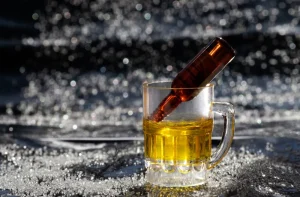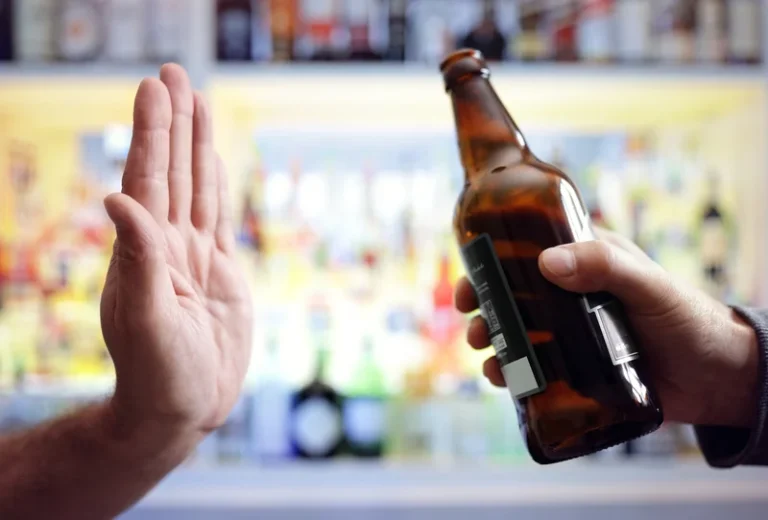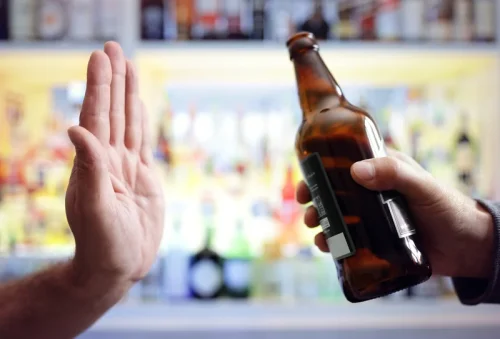
Thus, prompt appropriate treatment of withdrawal, even in patients with mild symptoms, may conceivably prevent the development of complicated, more severe withdrawal during subsequent episodes. Outpatient treatment may be available for mild-to-moderate symptoms alcohol withdrawal of alcohol withdrawal; however, should symptoms become severe, inpatient care may be required. Every year more than one-and-a-half million people in the United States either enter alcoholism treatment or are admitted to a general hospital because of medical consequences resulting from alcohol dependence. These patients, as well as a substantial number of other people who stop drinking without seeking professional treatment, experience alcohol withdrawal (AW).
Complications
- Because a diagnosis of AW-related seizures may require further evaluation, however, the agent is sometimes administered until other causes of seizures have been ruled out.
- If you experience withdrawal symptoms, it’s one sign that you’re becoming dependent on alcohol.
- Administration period and median amount of the benzodiazepine chlordiazepoxide administered over the course of alcohol withdrawal to patients undergoing a symptom-triggered or fixed-schedule dosing regimen.
- If a second convulsion occurs, it generally happens within 6 hours of the first seizure (Victor and Brausch 1967).
- Know that your provider will be there to support you, not to judge you.
- Total and lifelong avoidance of alcohol (abstinence) is the safest approach.
- “Last night was horrible. I was soaking wet with sweat, I jumped a few times in my sleep, and I had very vivid dreams.”
For people who experience hallucinations as part of alcohol withdrawal, these may begin in the 12- to 24-hour time frame. There is no exact timeline for alcohol withdrawal, and individual factors, such as the level of dependence on alcohol, will influence it. Over time, however, the body builds a tolerance to alcohol, and a person may have to drink more and more to get the same feeling. Meanwhile, the brain is producing more and more neurotransmitters, making a person further imbalanced. This means that, while medical detox services do have an important place in a person’s addiction treatment plan, they are not intended to be the only form of treatment that a person receives. Without medical treatment, DT is estimated to be fatal in up to 37% of cases, according to researchers at the State University of New York (SUNY), but it can be managed using tranquilizing medications and other supportive care.
Management and Treatment
“I read other people’s withdrawal symptoms and how they seem to be over in a week, but mine are still hanging on … Just stomach problems and anxiety, mostly.” “Now that most of the physical symptoms have gone away, time to work at staying sober. This is usually where I mess up and drink because I am feeling better and think I can handle it. I know I can’t.” For many, the first day of abstinence usually follows a day of very heavy alcohol consumption—either a binge or a multi-day bender. Almost 8,000 responses were gathered to the question, “What were your toughest withdrawal symptoms and how did you cope?” The comments reveal a wide variety of symptoms and experiences, even within the same days, from days one to 30 and beyond. If you’re planning on decreasing your dependence on alcohol, consult your doctor.
Skin Symptoms
- Alcohol withdrawal treatment is often based on your drinking history, the severity of your symptoms, and the kinds of support that are available to you.
- Anyone who is having severe symptoms of alcohol withdrawal syndrome, such as seizures, hallucinations, or prolonged vomiting needs immediate medical treatment.
- Despite this current understanding of the mechanisms underlying AW syndrome, some controversies still exist regarding the risk, complications, and clinical management of withdrawal.
- Acute withdrawal symptoms are also commonly known as drug or alcohol withdrawal syndrome, and they can develop in response to a person discontinuing or dropping their dosage after using a wide variety of different substances.
Read on to learn about the symptoms of AWS, as well as how it can be treated or prevented. It’s important to weigh the pros and cons—in particular, costs and insurance coverage—of the type of treatment with your family members and primary care physician. If you do not have insurance, your doctor can help put you in touch with a facility or treatment program that offers financial aid, financing, or a sliding scale payment system, in which you pay what you can.
- A doctor can perform a typical checkup and a blood test to see if the individual is still in good health or needs a treatment plan or medication.
- Alcohol withdrawal occurs when a person suddenly stops (or significantly reduces) alcohol intake after long-term dependence.
- In fact, even in clinical studies of patients presenting for alcohol detoxification, the proportion of patients who developed significant symptoms ranged from 13 to 71 percent (Victor and Adams 1953; Saitz et al. 1994).
- Ethanol is the primary alcohol that’s ingested by people with alcohol use disorder.
- After six days of sobriety, these people report vastly different experiences with sleep and other alcohol withdrawal symptoms.
- Many agents other than benzodiazepines have been used for managing AW.

Heavy drinkers who suddenly decrease their alcohol consumption or abstain completely may experience alcohol withdrawal (AW). Signs and symptoms of AW can include, among others, mild to moderate tremors, irritability, anxiety, or agitation. The most severe manifestations of withdrawal include delirium tremens, hallucinations, and seizures. These manifestations result from alcohol-induced imbalances in the brain chemistry that cause excessive neuronal activity if the alcohol is withheld. Management of AW includes thorough assessment of the severity of the patient’s symptoms and of any complicating conditions as well as treatment of the withdrawal symptoms with pharmacological and nonpharmacological approaches.
Mood Swings, Brain Fog, and Anxiety

Antipsychotic medications such as haloperidol can treat hallucinations and agitation that are unresponsive to adequate doses of benzodiazepines. Because antipsychotic medications can increase the risk of seizures, however, these agents should be used only in combination with benzodiazepines. DT’s, which last up to 3 or 4 days, are characterized by disorientation and are usually accompanied by autonomic signs resulting from the activation of the nerves responsible for the body’s response to stress). Those signs include severe agitation, rapid heartbeat (i.e., tachycardia), high blood pressure, and fever. About five percent of the patients who experience DT’s die from metabolic or cardiovascular complications, trauma, or infections (Victor and Adams 1953; Cutshall 1964). Lots of people with alcohol use disorder need professional help to quit drinking.
How is alcohol withdrawal syndrome treated?

It’s important to get medical help even if you have mild symptoms of withdrawal, as it’s difficult to predict in the beginning how much worse the symptoms could get. It affects about 50% of people with alcohol use disorder who stop or significantly decrease their alcohol intake. AUD is the most common substance use disorder in the U.S., affecting 28.8 million adults.
“Feeling much better. Very slight discomfort in the chest occasionally. No sweating. Disturbed sleep? Yes. But I guess in a few days, I should be fine.” “Depression is gone, anxiety gone, and all else gone. Didn’t sleep great last night, but tonight will be good.” “The third day sober feels like I’m in a big black hole and under great pressure—hard to breathe, future feels bleak, lost an old trusted friend in alcohol, can’t find an alternative.” “It’s been really tough, constant inner voice trying to persuade me just the one-night drinking again would be OK. I have just had to surf the urges, keep busy, and use all my strength.”
- This article discusses alcohol withdrawal, its symptoms, and potential complications.
- Homeostasis is the concept that the human body is always working to maintain its internal balance, constantly adapting to changing conditions.
- These conditions include gastrointestinal bleeding, infection, intracranial hemorrhage (acute bleeding in the brain), and liver failure.
- “Tried again today, but it was severe this time—bad shaking, sweating, rapid heartbeat. Instead of going to the hospital or doctor, I tried to wean and reduce for a few days.”
- When the supply of alcohol is suddenly stopped or decreased, withdrawal symptoms can develop.
- The longer you’re abstinent, the more time your mind and body have to heal.
For those trying to detox from alcohol, it is vital to do so under the supervision of a doctor, as the withdrawal symptoms may be severe. Alcohol use disorder can lead to various physical and mental health conditions. The continued use of alcohol causes changes in the central nervous system and neurotransmitter production in the brain. When the supply of alcohol is suddenly stopped or decreased, withdrawal symptoms can develop. Some symptoms, such as irritability, fatigue, and sleep disturbances, may persist over time while the body adjusts to the lack of alcohol. Individuals may also want to consider maintenance medications, a support group, or enlisting the support of friends.
Treatments for Alcohol Withdrawal
Because alcohol is a depressant, drinking suppresses the ‘fight or flight’ response in your brain and nervous system. Many involve a combination of group psychotherapy (talk therapy) and medications. During an exam, they’ll look for other medical conditions to see if they could be to blame. Over time, your central nervous system adjusts to having alcohol around all the time. Your body works hard to keep your brain in a more awake state and to keep your nerves talking to one another.
